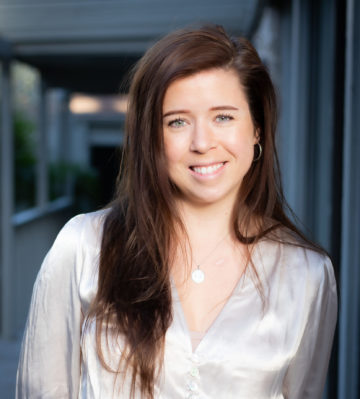Editor’s note: This story was originally published in the Texas Observer’s May/June 2021 print edition. Since its publication, prosecutor Ralph Petty has surrendered his license to practice law. A district court judge in Midland has also recommended a new trial for Clinton Young.
It’s 2016, and I’m driving north on U.S. 59, a four-lane stretch of blacktop in Deep East Texas bordered by towering pines. This morning, I’d set out from New Orleans, where I intern at a public defender’s office, to make the five-hour trek to rural Polk County, northeast of Houston. I see my turnoff up ahead: the country road leading to the Allan B. Polunsky Unit, a maximum-security prison comprising a collection of drab concrete buildings hemmed in by barbed wire.
This is where a dear friend has been sentenced to die.
At the gate, the guards search the trunk of my car to make sure I’m not carrying any contraband. I park, go inside, and am escorted to the visitation area, a long, narrow room with rows of cubicles separated by a heavy sheet of plexiglass. The air is thick with conversations between incarcerated people and their visitors—doting wives who dream of the day they’re reunited with their husbands, crying babies that have never been held by their father or grandfather or uncle, fervently praying priests. I sit in a sticky chair in a cubicle that’s tinted yellow from the fluorescent lights overhead as I wait for my friend to arrive.
Eventually, a guard opens a door behind the glass and escorts Clinton into the cubicle opposite mine. He is tall, with pale blue eyes and a buzz cut. He’s in handcuffs. I consider Clinton a close friend after years of corresponding by letter, but I’ve never actually met him until today. And seeing him like this—handcuffed, locked behind a metal door—is disconcerting. Clinton Lee Young, standing in front of me at 32 years old, is treated as if he’s a killer.
I don’t think he killed anyone.
In 2000, a man named Doyle Douglas was killed in Longview as part of what police say was a drug deal and kidnapping gone wrong. Two days later, Samuel Petrey was killed in Midland. Police arrested Clinton, only 18 years old then, on suspicion of murder because he was present at both crime scenes. They also arrested two other people in connection to the deaths, who would later testify against Clinton. In 2003, he was convicted by a Midland County jury of capital murder, sentenced to death, and sent to the Polunsky Unit, the facility that houses all the men in Texas on death row. He’s been there ever since.

In January 2014, I saw a Dutch documentary about Clinton’s case that aired in the Netherlands, where I was born and grew up. By that time Clinton had been in solitary confinement on death row for 11 years. Meanwhile, I was finishing up law school in Rotterdam. I felt an inexplicable connection to Clinton, a feeling that was neither pity nor simple curiosity. I was immediately drawn to his story, and I didn’t want to just learn more about his case—I wanted to do more.
On the screen, I saw a young, healthy, and possibly innocent man explain his fate. It shocked me. In the Netherlands, not only has the death penalty been abolished for more than a millennium, but even a life sentence is rarely implemented. The justice system there focuses primarily on rehabilitation, which is why there is hesitancy to carry out an irreversible sentence. The death penalty’s only purpose is retaliation—a difficult concept for me to accept, both from a legal perspective and a humanitarian one. I wanted to help Clinton, so I started with the easiest thing I could do: I wrote him a letter. I told Clinton about my interest in the law, and he wrote back: “You know what your goals are. I think we will get along great.” He was right. Through our first few letters, we quickly developed a bond that later became a lifelong friendship.
I regularly visited Clinton the summer I worked in New Orleans. In fact, Clinton was a big part of the reason I applied for the internship to begin with. As our friendship grew, so did my interest in his legal case. I devoted hours every day to learning as much as I could about his conviction. The state’s case looked weak. There was no ballistic evidence, forensic evidence, fingerprints, or DNA to prove that Clinton was guilty of the killings, and the state was largely dependent on the testimony of his two co-defendants. (They received lenient sentences in return for their testimony against Clinton, which would later be deemed inconsistent and unreliable.) Later, in 2019, I would learn that Ralph Petty, the prosecutor in the case, had secretly worked for the judge as a paid law clerk. It was in this role that Petty drafted rulings in Clinton’s case, advised the judge on legal matters, and had access to confidential information that would otherwise not be accessible to a prosecutor. Petty’s relationship with the judge impacted dozens of other cases, robbing defendants of a fair trial.

After completing my internship and returning to the Netherlands, I joined a nonprofit that had been created in Clinton’s name. Then the worst possible thing happened: The judge in Clinton’s case set an execution date for October 26, 2017. When his execution had not been stayed by October 18, I flew 13 hours from Amsterdam to Houston. While I was in the air, the court granted Clinton a stay of execution. Clinton’s legal relief came after new evidence emerged of possible false testimony by the state’s star witness, one of Clinton’s co-defendants. He had provided crucially damning testimony at Clinton’s trial, and the Court of Criminal Appeals agreed that it was possibly false and Clinton shouldn’t be executed until more investigating was done.
His life had been saved—temporarily, at least—but Clinton is still living in terrible conditions. He has been in solitary confinement for almost 20 years: That’s 20 birthdays without being celebrated; it’s 1,040 Mondays waking up in a 7-by-10-foot cage completely alone; it’s 7,300 days of total isolation with virtually no human contact. In the past 20 years, the only time Clinton has had any physical contact with another person is when prison staff have used force. He hasn’t felt his mother’s embrace since he was 18. The complete sensory deprivation is enough to break even the strongest person.
Clinton’s near-execution was a wake-up call for me. I started applying to law schools in Texas, with the ultimate goal of representing people with death sentences. I was admitted to a one-year master’s of law program at the University of Texas School of Law in Austin, which meant I would be living only four hours from the Polunsky Unit. My once-a-year visits became once-a-week visits. That year at law school, while I was working to understand a complex American judicial system, Clinton helped me with my studies. He gave me some of his law books, and he offered explanations for the legal theories I learned in class. Clinton is remarkably intelligent, and I often asked him to explain a certain law, legal term, or case. He would respond with a detailed letter full of case examples, explanations, and his personal annotations. My law school study materials consisted of legal anthologies, casebooks, my own notes, and Clinton’s letters. Clinton was a constant motivation to me throughout law school, and when I graduated in May 2020 with a specialization in capital punishment, I knew it was an accomplishment we had achieved together. Six months later, after the two-day, 12-hour Texas bar exam, I became a licensed attorney.
Last year, I established the U.S. chapter of the Clinton Young Foundation and became its general counsel. The nonprofit, once nothing more than a Facebook page with a mission, is now a multinational entity with the common goal to get Clinton off death row and help others who are similarly trapped in the American criminal “justice” system. The foundation has become my passion, and I’m making it my life’s work. The foundation’s mission isn’t fulfilled yet because Clinton is still on death row, but we are working to create a legacy for Clinton. If nothing else, I want the world to believe what I do, which is that he is innocent of murder and never received a fair trial.
Recently I read some of Clinton’s first letters to me, and I couldn’t help but smile. In his first one, from January 2015, he wrote, “Do you plan to come back to the U.S. any time in the near future? If you want to work on a case, why not work on mine?” Now I’m one of Clinton’s attorneys and I run a human rights organization in his name. I could have never imagined that my life would look like this. But I was lucky to meet the right person, who inspired me to take a different course.
And my work has only just begun.
Merel Pontier is a criminal defense attorney specializing in capital cases. She is the founder of the U.S. chapter of the Clinton Young Foundation as well as its general counsel.
Emily Bloom, a law student at the University of Texas at Austin and a board member of the Clinton Young Foundation, assisted in editing this article.







